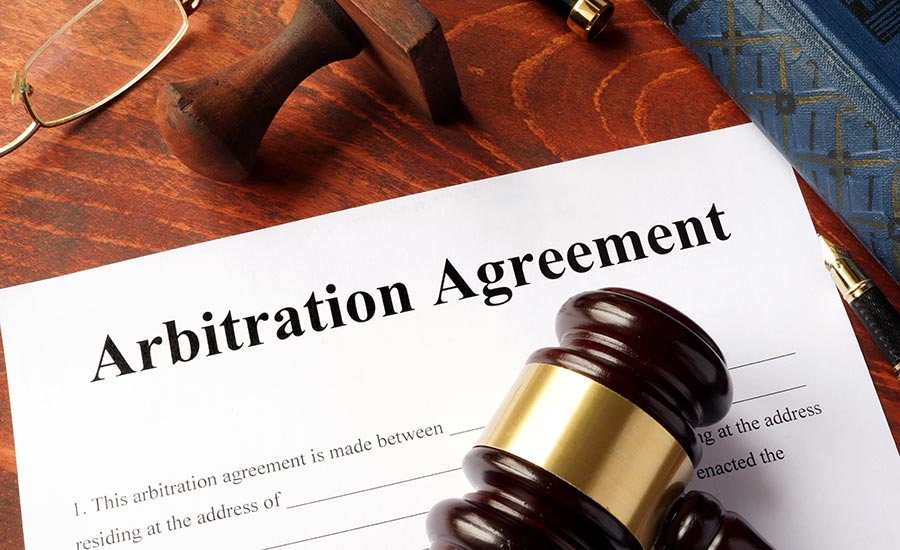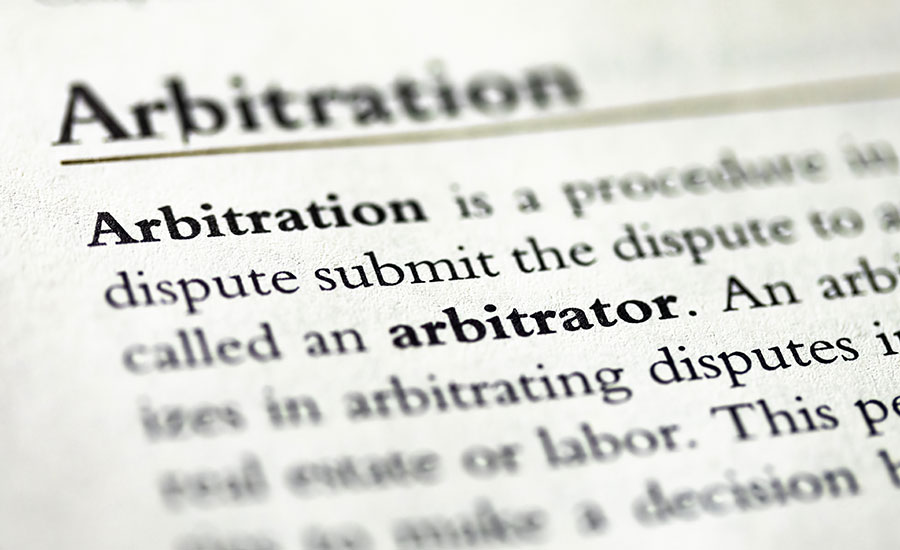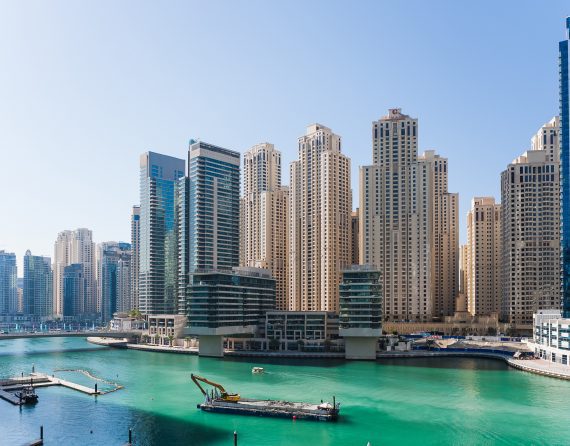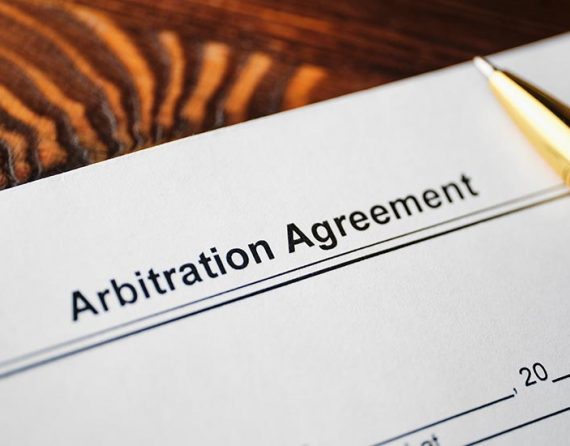Arbitration serves a pivotal role in resolving disputes within the oil and gas — a sector known for its high stakes, technical complexities, and international scope.
In this industry, where contracts often span multiple jurisdictions and involve substantial financial investments, arbitration provides a neutral, efficient, and specialized forum for dispute resolution.
We’ll provide a brief synapsis of the evolution of arbitration in oil and gas disputes, followed by the role of arbitration in oil and gas disputes, succeeded by the benefits of this approach, and finally we will offer insights on dispute resolution from our attorneys at Youseff + Partners.
The Evolution of Arbitration in Oil and Gas Disputes
Throughout the years, arbitration in the oil and gas industry has continuously adapted to the sector’s evolving legal, technical, and commercial landscapes, proving its resilience and indispensability as a dispute resolution mechanism.
There are a few key pivotal eras in the evolution of arbitration in oil and gas disputes.
1940s: Early Stages
Following World War II, arbitration in the oil and gas industry primarily focused on domestic contractual disputes. This period was characterized by straightforward legal challenges, such as breaches of supply contracts within a single country, where arbitration was used as a tool to resolve these relatively simpler disputes.
Growth and Expansion: Internationalization
As the oil and gas industry expanded its footprint globally, arbitration evolved to address the complexities of international contracts and joint ventures.
This phase marked the emergence of arbitration as a key mechanism for resolving disputes involving multinational companies, often centered around investment terms, operational control, and cross-border contractual obligations.
1970s-1980s: Nationalism and Expropriation
The oil crisis era and the rise of nationalization in oil-rich countries brought about a significant increase in arbitration cases related to expropriation.
Governments in some countries, including Libya and Iran, nationalized foreign oil companies’ assets, leading to a series of arbitration claims focused on compensation and fair treatment under International Law.
1990s: Institutionalization and Standardization
This decade witnessed the institutionalization of arbitration with the rise of specialized bodies like the International Centre for Settlement of Investment Disputes (ICSID).
This era saw disputes arbitrated under these institutional rules, often involving contractual disagreements between international oil companies and host states, among other disputes.
2000s: Modern Developments
The turn of the millennium introduced multifaceted disputes involving advanced technology, environmental issues, and complex financial agreements, such as production-sharing contracts.
Arbitration had to adapt to these changes, handling cases related to deep-water drilling technologies or environmental damage claims, and integrating technical expertise into the legal proceedings.
2020s: Transparency and Regulatory Issues
In recent years, there has been a growing demand for transparency in arbitration proceedings to meet the rise in environmental regulations and climate change disputes.
Arbitration began to involve more complex regulatory compliance issues, reflecting the global shift towards sustainable energy practices and environmental accountability.
Future Outlook: Adaptation and Efficiency
Looking forward, the focus on arbitration within the oil and gas sector is shifting towards enhancing efficiency while ensuring fairness and transparency.
This shift is particularly important in disputes involving state entities, where issues such as carbon emissions and climate change-related clauses in contracts are becoming increasingly prevalent.
The Role of Arbitration in Today’s Oil and Gas Disputes
In today’s oil and gas industry , the role of arbitration in resolving disputes is connected to long-term supply agreements. These agreements often involve international parties and are subject to fluctuating market conditions.
In these cases, arbitration provides:
- A channel to handle complex international issues.
- Expertise in technical matters.
- Confidentiality and privacy.
- Enforceable outcomes.
- Flexibility and efficiency.
When disagreements arise over terms in the contracts, such as pricing, delivery schedules, or compliance with regulatory standards, arbitration offers a neutral, efficient, and specialized forum for resolving these conflicts.
Arbitrators with expertise in international trade, energy markets, and specific legal frameworks can assess the complex terms of these agreements and deliver enforceable decisions, providing a practical resolution mechanism that respects the global oil and gas industry’s contractual relationships and business realities.

Arbitration Laws and Regulations in Oil and Gas Disputes
Arbitration laws and regulations in oil and gas disputes consist of various international and national legal frameworks. These include:
- International conventions: The New York Convention on the Recognition and Enforcement of Foreign Arbitral Awards is pivotal, ensuring that arbitral decisions are recognized and enforceable in over 160 countries.
- National laws: Each country has its own arbitration laws which govern the conduct of arbitrations within its territory, impacting how oil and gas disputes are resolved domestically.
- Institutional rules: Arbitration institutions like the International Chambers of Commerce, London Court of International Arbitration, and ICSID provide procedural rules that are often adopted in oil and gas arbitrations, offering structured frameworks for dispute resolution.
- Contractual clauses: Contracts in the oil and gas industry typically include arbitration clauses specifying the arbitration method, applicable law, and sometimes the venue, shaping how disputes will be arbitrated.
- Sector-specific regulations: Some countries have regulations specific to the oil and gas sector that might include provisions related to arbitration, particularly in areas like licensing and environmental compliance.
- Expertise and confidentiality considerations: The need for specialized knowledge in the oil and gas sector and the emphasis on confidentiality in disputes are also key considerations impacting the application of arbitration laws and regulations in this field.

Oil and Gas Disputes That Require Arbitration
In the oil and gas sector, disputes that commonly require arbitration include:
Contractual Disputes
Contractual disputes arise over disagreements related to the clauses in a contract, such as the quality of work performed, timeliness of services or payments, and adherence to specific contractual obligations.
For example, a dispute might occur if one party alleges that the other did not meet the agreed-upon standards in the extraction process of an oil field, leading to lower production rates than contractually guaranteed.
Joint Venture and Partnership Disagreements
Joint venture and partnership disagreement disputes involve conflicts within joint ventures or partnerships, often about control over operations, decision-making processes, and the distribution of profits or losses.
For example, a dispute might occur in a situation in which one partner alleges mismanagement or unfair profit distribution, impacting the overall output and revenue of a shared oil drilling project.
Expropriation and Nationalization
Expropriation and nationalization disputes include governmental actions that affect property rights in the oil and gas sector, such as expropriation or nationalization of assets, often leading to disputes over fair compensation.
For example, a dispute might occur if a government nationalizes foreign-held oil fields without providing adequate compensation, leading to international arbitration for the recovery of investments.
Regulatory and Compliance Issues
Most regulatory and compliance disputes arise over adherence to environmental regulations and safety standards set by governing bodies in the oil and gas sector.
For example, a dispute might arise if an oil company allegedly fails to comply with new environmental standards for reducing emissions, potentially leading to fines or operational restrictions.
Investment Treaty Disputes
Investment treaty disputes occur between foreign investors and host states, typically under bilateral or international treaties, often related to changes in policy or regulations that affect investments.
Such disputes can encompass a variety of claims, including those related to Fair and Equitable Treatment (FET), Most-Favored Nation (MFN) treatment, National Treatment (NT), and issues of expropriation or nationalization.
FET claims involve allegations that the host state violated the investor’s right to fair and equitable treatment as stipulated in the investment treaty. MFN treatment disputes arise when an investor claims that they have not received treatment as favorable as that extended to investors from other nations. National Treatment claims involve allegations of discrimination against a foreign investor in favor of domestic entities.
For example, a dispute might occur if a foreign investor claims compensation from a host state for sudden policy changes that had a negative impact on their oil extraction operations.
Pricing and Valuation Dispute
Pricing and valuation disputes arise from disagreements over the fluctuation of market prices and the valuation of assets in the oil and gas industry.
These pricing issues can occur both in the upstream sector, which involves exploration and production, and the downstream sector, encompassing refining, processing, and distribution.
For example, a dispute might arise concerning the adjustment of prices in a long-term gas supply agreement due to significant changes in market prices.
Insurance and Liability Issues
Insurance and liability conflicts occur over insurance coverage and liability for incidents such as oil spills or other operational mishaps in the oil and gas sector.
For example, an oil company and its insurer might dispute over the extent of coverage and liability for damages resulting from an offshore oil spill.
Arbitration in Oil and Gas Disputes at Youssef + Partners
Youssef + Partners stands at the forefront of managing dispute resolution in oil and gas contracts. Our team is recognized for our strategic approach to crisis management and pre-dispute and dispute resolution.
As a leading firm for arbitration in the MENA region, we are dedicated to delivering not just expert legal advice, but also forward-thinking solutions that emphasize crisis prevention and effective dispute resolution.
Our oil and gas dispute services include:
- Investment treaty arbitrations: We represent clients in disputes arising from treaty-based investments in the oil and gas sector.
- Complex commercial arbitrations: We manage intricate arbitration disputes involving exploration and production rights, joint operation agreements, and the acquisition and disposal of oil or gas concession rights, along with handling the logistics and commercialization of oil and gas.
- Regulatory and licensing consultation: We offer advice on matters related to industry regulations, licensing, and strategies for business expansion, divestment, or exit strategies in the market.
- Contractual advice in oil and gas: We provide insights into contractual issues concerning exploration, extraction, transportation, and the commercial aspects of oil and gas transactions.
Navigating the intricacies of oil and gas disputes requires expert help, and Youssef + Partners is equipped to offer that guidance.
We serve clients in oil and gas resolution, with a significant presence in cities known for their oil and gas industries. We offer services in Cairo, Doha, Dubai, Abu Dhabi, and Ras El Khaimah, and extend our expertise to jurisdictions such as Turkey, Lebanon, and Kuwait.




